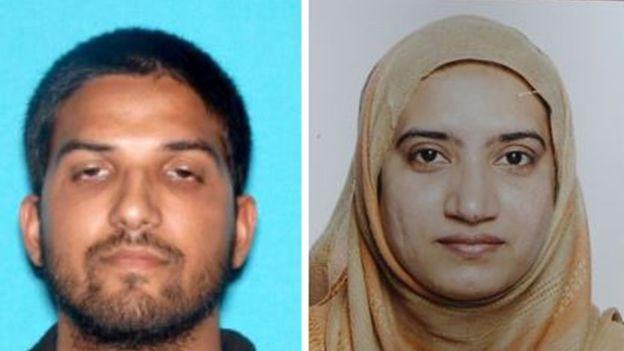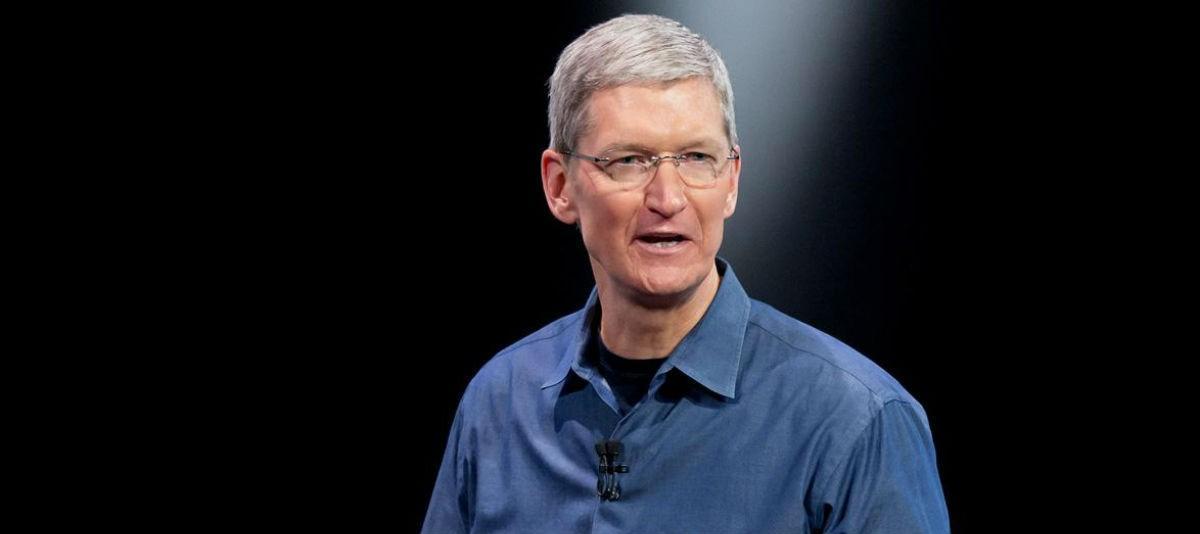Apple has issued a statement that the company will contest a U.S. court order to help FBI investigators access data on the phone belonging to San Bernardino gunman Syed Rizwan Farook.
In the statement, Apple chief executive Tim Cook said:
“The United States government has demanded that Apple take an unprecedented step which threatens the security of our customers.”
“We oppose this order, which has implications far beyond the legal case at hand.”
A federal judge had ordered Apple to help the U.S. government unlock the iPhone used by one of the shooters who carried out the December 2 San Bernardino, Calif., terrorist attacks after the government said that the company failed to provide assistance voluntarily.
The Justice Department sought the order “in the hopes of gaining crucial evidence” about the shooting rampage, which killed 14 people and injured 22.
The order, signed Tuesday by a magistrate judge in Riverside, Calif., does not ask Apple to break the phone’s encryption but rather to disable the feature that wipes the data on the phone after 10 incorrect tries at entering a password. That way, the government can try to crack the password using “brute force” attempting tens of millions of combinations without risking the deletion of the data.

Since September 2014, data on the latest Apple devices – such as text messages and photographs – have been encrypted by default.
If a device is locked, only the user’s passcode can be used to access the data. If 10 incorrect attempts at the code are made the device will automatically erase all of its data.
Apple says even its own staff cannot access the data – a move the company made following the Edward Snowden revelations into government surveillance.
The FBI has asked Apple to do two things.
Firstly, it wants the company to alter Farook’s iPhone so that investigators can make unlimited attempts at the passcode without the risk of erasing the data.
Secondly, it wants Apple to help implement a way to rapidly try different passcode combinations, to save tapping in each one manually.
The FBI wants to use what is known as a “brute force” attack, trying out every combination until stumbling across the correct one and unlocking the phone. Farook is understood to have used a four-digit passcode which means there are 10,000 possible combinations.
Apple said the FBI’s demands set “a dangerous precedent”.
“The FBI wants us to make a new version of the iPhone operating system, circumventing several important security features, and install it on an iPhone recovered during the investigation,” wrote Mr Cook.
“The government is asking Apple to hack our own users and undermine decades of security advancements that protect our customers.
“Opposing this order is not something we take lightly. We feel we must speak up in the face of what we see as an overreach by the US government.”
Farook and his wife killed 14 people in the California city last December before police fatally shot them.
“We have no sympathy for terrorists,” said Mr Cook.
“We are challenging the FBI’s demands with the deepest respect for American democracy and a love of our country.”
[accordions]
[accordion title=”Apple Letter to Customers” load=”hide”]The United States government has demanded that Apple take an unprecedented step which threatens the security of our customers. We oppose this order, which has implications far beyond the legal case at hand.
This moment calls for public discussion, and we want our customers and people around the country to understand what is at stake.
The Need for Encryption
Smartphones, led by iPhone, have become an essential part of our lives. People use them to store an incredible amount of personal information, from our private conversations to our photos, our music, our notes, our calendars and contacts, our financial information and health data, even where we have been and where we are going.
All that information needs to be protected from hackers and criminals who want to access it, steal it, and use it without our knowledge or permission. Customers expect Apple and other technology companies to do everything in our power to protect their personal information, and at Apple we are deeply committed to safeguarding their data.
Compromising the security of our personal information can ultimately put our personal safety at risk. That is why encryption has become so important to all of us.
For many years, we have used encryption to protect our customers’ personal data because we believe it’s the only way to keep their information safe. We have even put that data out of our own reach, because we believe the contents of your iPhone are none of our business.
The San Bernardino Case
We were shocked and outraged by the deadly act of terrorism in San Bernardino last December. We mourn the loss of life and want justice for all those whose lives were affected. The FBI asked us for help in the days following the attack, and we have worked hard to support the government’s efforts to solve this horrible crime. We have no sympathy for terrorists.
When the FBI has requested data that’s in our possession, we have provided it. Apple complies with valid subpoenas and search warrants, as we have in the San Bernardino case. We have also made Apple engineers available to advise the FBI, and we’ve offered our best ideas on a number of investigative options at their disposal.
We have great respect for the professionals at the FBI, and we believe their intentions are good. Up to this point, we have done everything that is both within our power and within the law to help them. But now the U.S. government has asked us for something we simply do not have, and something we consider too dangerous to create. They have asked us to build a backdoor to the iPhone.
Specifically, the FBI wants us to make a new version of the iPhone operating system, circumventing several important security features, and install it on an iPhone recovered during the investigation. In the wrong hands, this software, hich does not exist today, would have the potential to unlock any iPhone in someone’s physical possession.
The FBI may use different words to describe this tool, but make no mistake: Building a version of iOS that bypasses security in this way would undeniably create a backdoor. And while the government may argue that its use would be limitedto this case, there is no way to guarantee such control.
The Threat to Data Security
Some would argue that building a backdoor for just one iPhone is a simple, clean-cut solution. But it ignores both the basics of digital security and the significance of what the government is demanding in this case.
In today’s digital world, the Å“key” to an encrypted system is a piece of information that unlocks the data, and it is only as secure as the protections around it. Once the information is known, or a way to bypass the code is revealed, the encryption can be defeated by anyone with that knowledge.
The government suggests this tool could only be used once, on one phone. But that’s simply not true. Once created, the technique could be used over and over again, on any number of devices. In the physical world, it would be the equivalent of a master key, capable of opening hundreds of millions of locks from restaurants and banks to stores and homes. No reasonable person would find that acceptable.
The government is asking Apple to hack our own users and undermine decades of security advancements that protect our customers, including tens of millions of American citizens, from sophisticated hackers and cybercriminals. The same engineers who built strong encryption into the iPhone to protect our users would, ironically, be ordered to weaken those protections and make our users less safe.
We can find no precedent for an American company being forced to expose its customers to a greater risk of attack. For years, cryptologists and national security experts have been warning against weakening encryption. Doing so would hurt only the well-meaning and law-abiding citizens who rely on companies like Apple to protect their data. Criminals and bad actors will still encrypt, using tools that are readily available to them.
A Dangerous Precedent
Rather than asking for legislative action through Congress, the FBI is proposing an unprecedented use of the All Writs Act of 1789 to justify an expansion of its authority.
The government would have us remove security features and add new capabilities to the operating system, allowing a passcode to be input electronically. This would make it easier to unlock an iPhone by “brute force”, trying thousands or millions of combinations with the speed of a modern computer.
The implications of the government’s demands are chilling. If the government can use the All Writs Act to make it easier to unlock your iPhone, it would have the power to reach into anyone’s device to capture their data. The government could extend this breach of privacy and demand that Apple build surveillance software to intercept your messages, access your health records or financial data, track your location, or even access your phone’s microphone or camera without your knowledge.
Opposing this order is not something we take lightly. We feel we must speak up in the face of what we see as an overreach by the U.S. government.
We are challenging the FBI’s demands with the deepest respect for American democracy and a love of our country. We believe it would be in the best interest of everyone to step back and consider the implications.
While we believe the FBI’s intentions are good, it would be wrong for the government to force us to build a backdoor into our products. And ultimately, we fear that this demand would undermine the very freedoms and liberty our government is meant to protect.”
Tim Cook[/accordion]
[/accordions]



